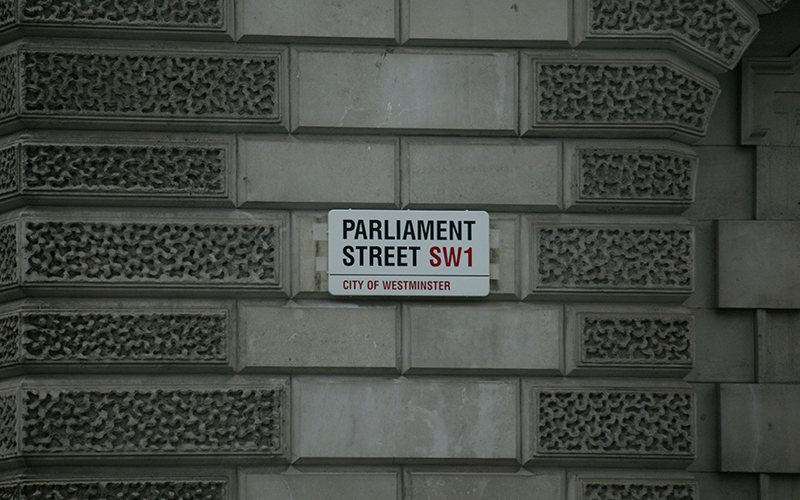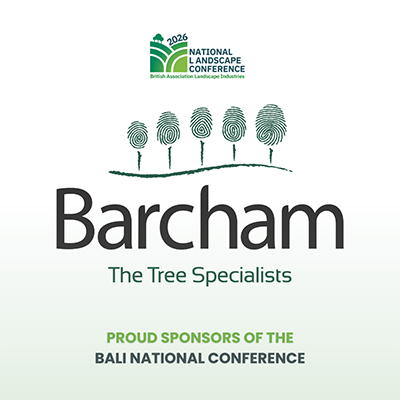
Autumn Budget Briefing
An analysis by the BALI policy team of the Autumn 2025 Budget
Introduction
Having completed a major spending review earlier this year, the government has today set out a range of specific tax and spend measures for the coming financial year and beyond in its Budget 2025. By all accounts, there has been a great deal of negotiation and speculation ahead of this budget, and many will welcome the certainty which these announcements bring. BALI submitted its own set of asks to the Chancellor several weeks ago and we were keen to see whether these would be addressed. Here, we highlight some the most relevant measures in the budget for our members and discuss the risks and opportunities they may pose.
Skills and Training
BALI welcomes Government’s continued commitment to invest £1.5 billion in employment and skills and the Chancellor’s support for small businesses and apprenticeships. Raising the level of skills in the economy remains an important part of the Government’s growth agenda.
The Chancellor’s statement on fully funding apprenticeship training for under-25s working in SMEs could be a significant development for many small businesses in the landscaping sector. However, many still find the current system too complex and off-putting. A simplification of the information available to employers would help reduce barriers to employment of apprentices.
We understand and support Government’s commitment to addressing the insufficient levels of economic activity within our youth population. We would welcome the opportunity to discuss with government how BALI and its members can help develop meaningful 6-month paid work placements as part of the Youth Guarantee.
We note the Government’s desire to simplify the apprenticeships and to make them as efficient as short courses. However, the industry has worked hard to develop a fit for purpose suite of apprenticeship qualifications, and we do not believe that there is a “one size fits all” approach to simplifying apprenticeships. We await with interest further details of what this proposal will entail.
Planning and Infrastructure
Planning continues to present a challenge to our industry in the delivery of landscaping projects across housing, large infrastructure projects, and local authority projects. The government has reaffirmed the commitment to build 1.5 million homes by funding hundreds more planners across England. This could positively impact elements of the delivery of landscaping projects; however, it is doubtful that this alone will meaningfully shift the challenges faced by BALI members through insufficiently funded and staffed local planning authorities.
Tax and Revenue
We welcome the announcement today that there will be no increases to National Insurance or personal income rates beyond what was announced last year. However, the freeze on rates being extended to 2031 will mean that more people will be paying higher rates of income tax as wages increase. This continues to put pressure on BALI members’ businesses as increases in minimum wages and the living wage create higher business costs and paying more in income tax will affect the bottom line for landscaping businesses.
The freeze on fuel duty has been extended to September 2026 which will be a positive impact for some businesses; however, the looming loss of the relief next year will subsequently raise transport costs for many and will add costs for businesses and households alike.
Furthermore, the introduction of an Electric Vehicle Excise Duty (eVED), which will impose a mileage-based charge on drivers of 3 pence per mile on fully electric vehicles and 1.5 pence per mile on plug-in hybrid cars. This will add material costs to landscaping businesses that are transitioning to greener business practices and coupled with the changes in VAT categorisation of double cab pickup trucks, means that landscaping businesses will be paying far more each year for transport which is vital for BALI members.
BALI is pleased to see that through engagement with government, there has been a reversal of the single-rate Landfill Tax, something that BALI put forward in our budget submission to Treasury. With some landscaping businesses potentially seeing costs rise by 3000% from the tax, the reversal of the single-rate is imperative to ensure that unnecessary financial burdens aren’t levied on businesses. BALI will continue to engage with government to ensure any further reforms are proportionate and manageable.
Greater support is needed for the industry long-term to address the challenges of construction waste. In 2022, 24.7 million tonnes of soil were sent to landfill, accounting for approximately 60% of all waste sent to landfill1. Reforms for organic waste disposal must support the industry in making positive change, not punish them within the current system.
BALI supplier members could be positively impacted by permanent lower business tax rates, which would include garden centres.
Nature and Water Management
Surprisingly, the chancellor made little mention of nature and the wider environment in her budget speech, reflecting a lack of related measures in the budget itself. However, the budget did include a few measures which could increase funding for delivery and create opportunities for BALI members.
The government says it is funding improvements to the performance and speed of environmental regulations, with more resources for ‘priority projects’ and the Nature Restoration Fund’s Environmental Delivery Plans. These plans effectively set out how the environmental impacts of development will be offset by environmental improvements elsewhere and they are aimed at encouraging housebuilding. Further resources for delivering the plans could present more opportunities for landscaping businesses to design, build, manage and maintain green spaces on both new developments and offsetting sites.
The government will also launch a new grant scheme for public bodies to support environmental regeneration, putting more money into land remediation where landfill tax is currently a blocker. This scheme represents a new funding stream for green delivery and could generate relevant contracts for members.
The government has previously announced a scheme to reinvest water company fines into projects which clean up rivers, but the budget confirms the scheme will channel £29 million into projects over the next two years. We know terrestrial landscaping can have a significant impact on watercourses and, therefore, the scheme could create opportunities for some members.
Overall, the lack of support for the delivery of environmental improvements such as biodiversity enhancements and water management is disappointing, as BALI members have shown a keen interest in delivering for the environment, including Biodiversity Net Gain2 and net zero opportunities.
Devolution – Local Authorities
The Government has confirmed at least £13bn for the 7 Mayoral Combined Authorities (MCAs) which covers approximately 40% of England’s population. This will have a positive impact for some landscaping businesses, as the funding is spread across a range of important policies such as skills and training, infrastructure projects, and local business support.
BALI continues to encourage local authorities, including MCAs to work with BALI and its members to deliver these policy priorities, as engaging with local businesses delivers solutions that meets the needs of local communities.
Devolved Nations
Today’s announcements include an additional £1.7 billion for the devolved governments through the operation of the Barnett formula over the Spending Review 2025. The Scottish Government is receiving £820 million, the Welsh Government £505 million and the Northern Ireland Executive £370 million. As the representative body for landscaping across the UK, BALI welcomes greater funding for the devolved governments which can support a range of policies including skills and training, delivery of environmental goods, housing and infrastructure projects and other priorities on which landscaping delivers and look forward to engaging with each nation to unlock the potential of landscaping across the UK.
Health and Wellbeing
Following a major increase in funding for the NHS earlier this year, the chancellor has now set out more specific commitments over the coming year in the budget, but we regret there is no mention of the link between health, wellbeing, and green space. The evidence shows that green spaces, created, managed and maintained by landscape professionals, can deliver significant benefits for health and wellbeing. We would like to see greater recognition of this fact in future budgets, through allocation of more funding to initiatives like green prescribing.
Conclusion
While not entirely negative, today’s budget has failed to deliver the economic levers necessary for the landscaping industry to confidently invest in their businesses and future. While some costs to households have reduced, business support measures were lacking, which are vital to the health and growth of BALI member businesses. The total lack of environmental support is a huge gap in the chancellor’s budget for growth, and a missed opportunity to invest in the environmental horticulture industry which contributes £38bn to UK GDP and supports 722,000 jobs and £8.5bn in tax. BALI remains committed to engaging with UK and devolved governments to advocate for the landscaping industry and the delivery of green based solutions across a wide breadth of policy priorities.

